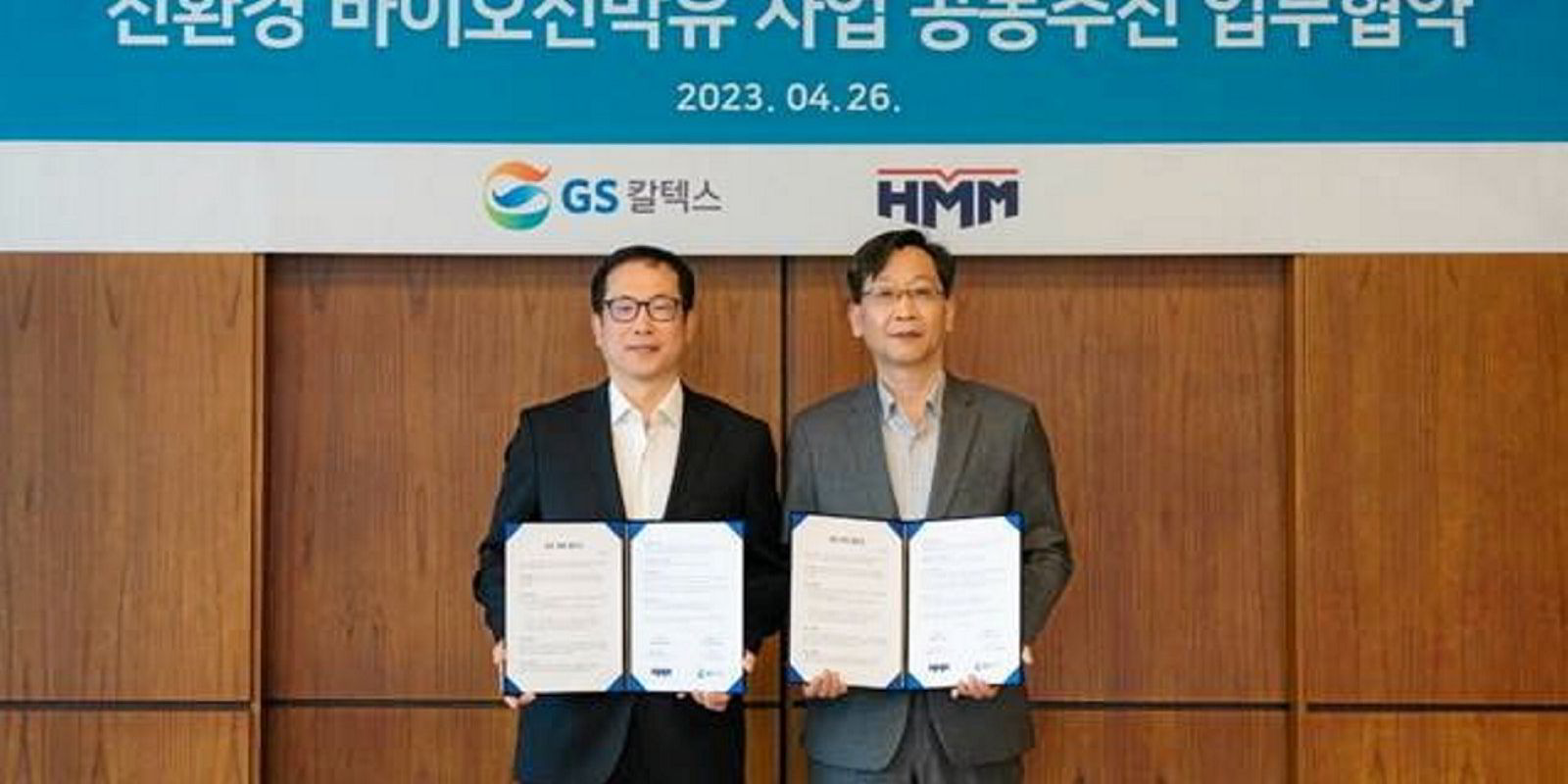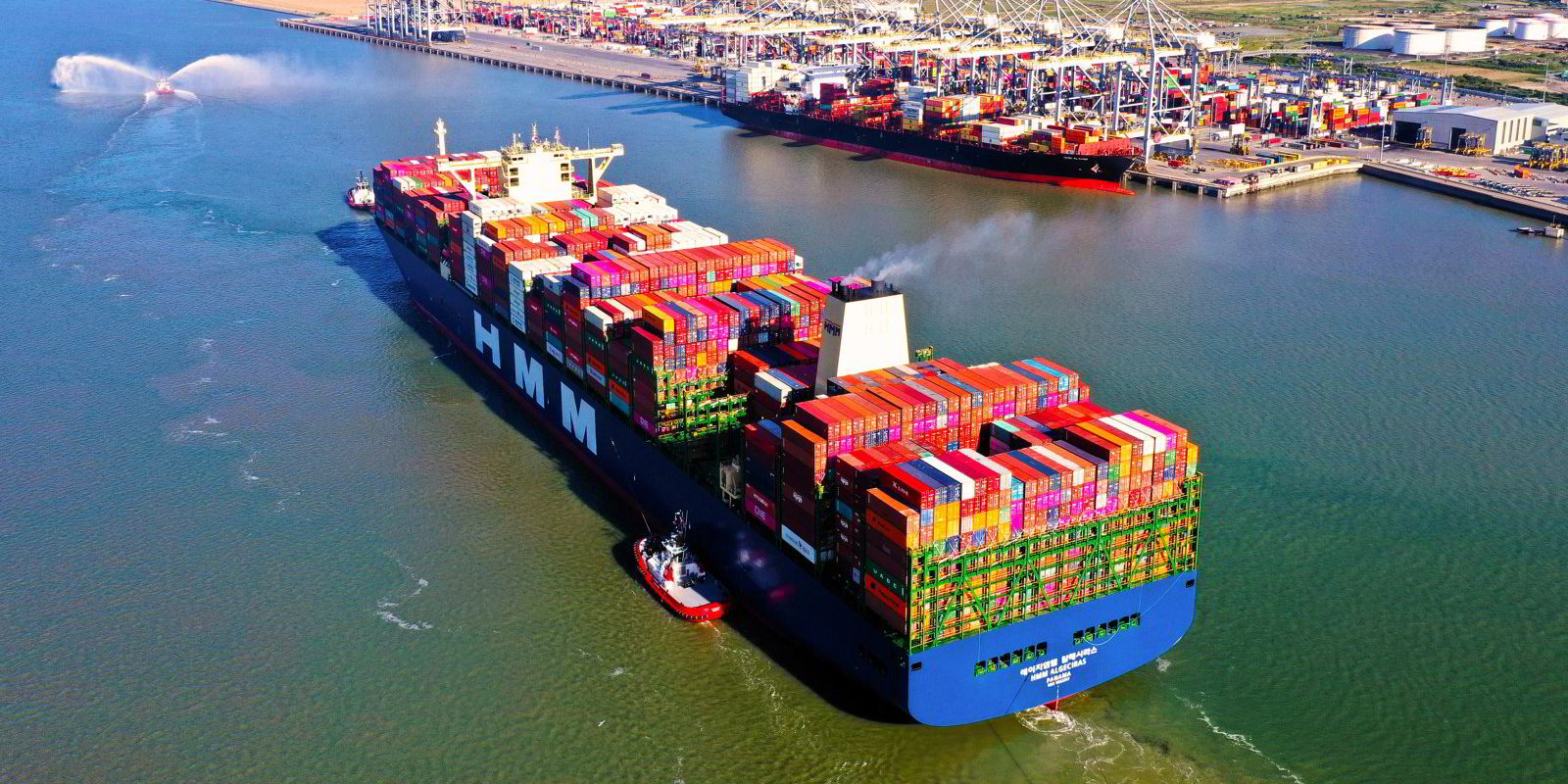South Korea’s HMM is continuing to secure supplies of lower-carbon fuels for its container ships.
The company said it has signed a memorandum of understanding with domestic producer GS Caltex for marine biofuels.
HMM plans to conduct a trial of their use on three of its massive 24,000-teu units in the second half of this year.
The GS Caltex product comprises 30% biodiesel derived from used cooking oil and 70% high-sulphur fuel oil (HSFO).
“Biodiesel reduces greenhouse gas emissions by 80% compared to conventional fuels. Biofuels have the merit of being compatible with current ship engines without technological modification,” the owner said.
In 2021, HMM performed its first test voyage using biofuels on a 13,100-teu vessel on a run from Asia to the US east coast.
Park Jinki, the company’s executive vice president, said: “Based on this MOU, we expect to generate less greenhouse gas emissions and thereby contribute to limiting climate change. We will continue to enhance our environmental competence by accelerating research and development activities.”
Already this week, HMM has said it is moving into ammonia shipping as part of its decarbonisation plans.
Methanol moves
The group has signed a MOU with Lotte Fine Chemical to transport and bunker the green fuel.
The bunkering plan includes methanol fuel for its new container ships, the world’s first such neo-panamaxes.
And HMM is working with Swiss producer Proman on methanol-fuelling solutions for its ships.
HMM has nine 9,000-teu methanol-powered boxships on order.
The owner is also ready to trial an on-board carbon capture system for container ships.




